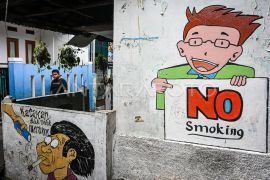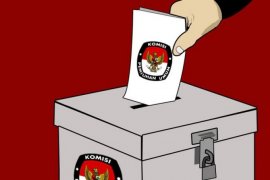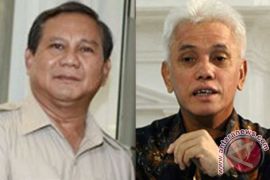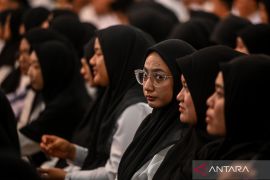"The PAN faction could not yet accept and agree to the endorsement of the bill," PAN Faction Spokesman in the House of Representatives (DPR) Ahmad Rubaei said during a DPR plenary here on Tuesday.
Earlier, chairman of the DPR plenary meeting Taufik Kurniaan asked representatives of the House factions to deliver their opinions over the bill on mass organizations.
Rubaei said that it was a fact that it was the House which initiated the RUU Ormas but the RUU Omas was quite different from the Bill on Political Parties (RUU Parpol).
"RUU Parpol will be used for us so that it can easily be communicated. It is ourselves who measure it and use it. But RUU Ormas will be used by mass organizations," said Rubaei.
When the draft of the bill is communicated to the mass organizations, they turned out to be rejecting it.
The same voice was also raised by the faction of the Gerindra Party through its spokesman Martin Hutabarat.
"The law must must be produced for the interest of the people but if the people do not feel its benefit, so what is the use for them?," said Martin.
He said that the House still needed further discussions and approaches to mass organizations. So, he said, the House had better postpone its plan to endorse it and held more dialogs with mass organizations.
Over the weekend, antigraft activists urged the House of Representatives to not pass the mass organizations bill into law as it would limit people`s freedom of of expression.
The House is slated to pass the bill in a plenary session on July 2. These activists, instead, urge the House to assist in government efforts to eradicate graft.
"The thinking that Indonesia needs this law is just bulk nonsense," Erwin Natosmal Oemar, a researcher at the Indonesian Legal Roundtable, told a press conference on Saturday as quoted by the Jakarta Post.
According to Erwin, the bill contains more political hidden agenda than transparent regulation. He added that the government and the House wanted to go back to the New Order era where political stability meant everything and that those who were critical of the government would be sent to prison.
These activists have long suspected that this mass organizations bill was nothing but a means to demolish democracy.
Echoing Erwin, Hifazil Alim, a researcher at the Center for Anticorruption Studies (Pukat) at Gajah Mada University (UGM) said that corruption eradication would be slowly put to rest if people did nothing to stop efforts to pass the bill into law.
"Many activists have been very critical of corruption eradication in the country. We cannot expect to do more if this bill passed into law." he said.(*)
Editor: Heru Purwanto
Copyright © ANTARA 2013









